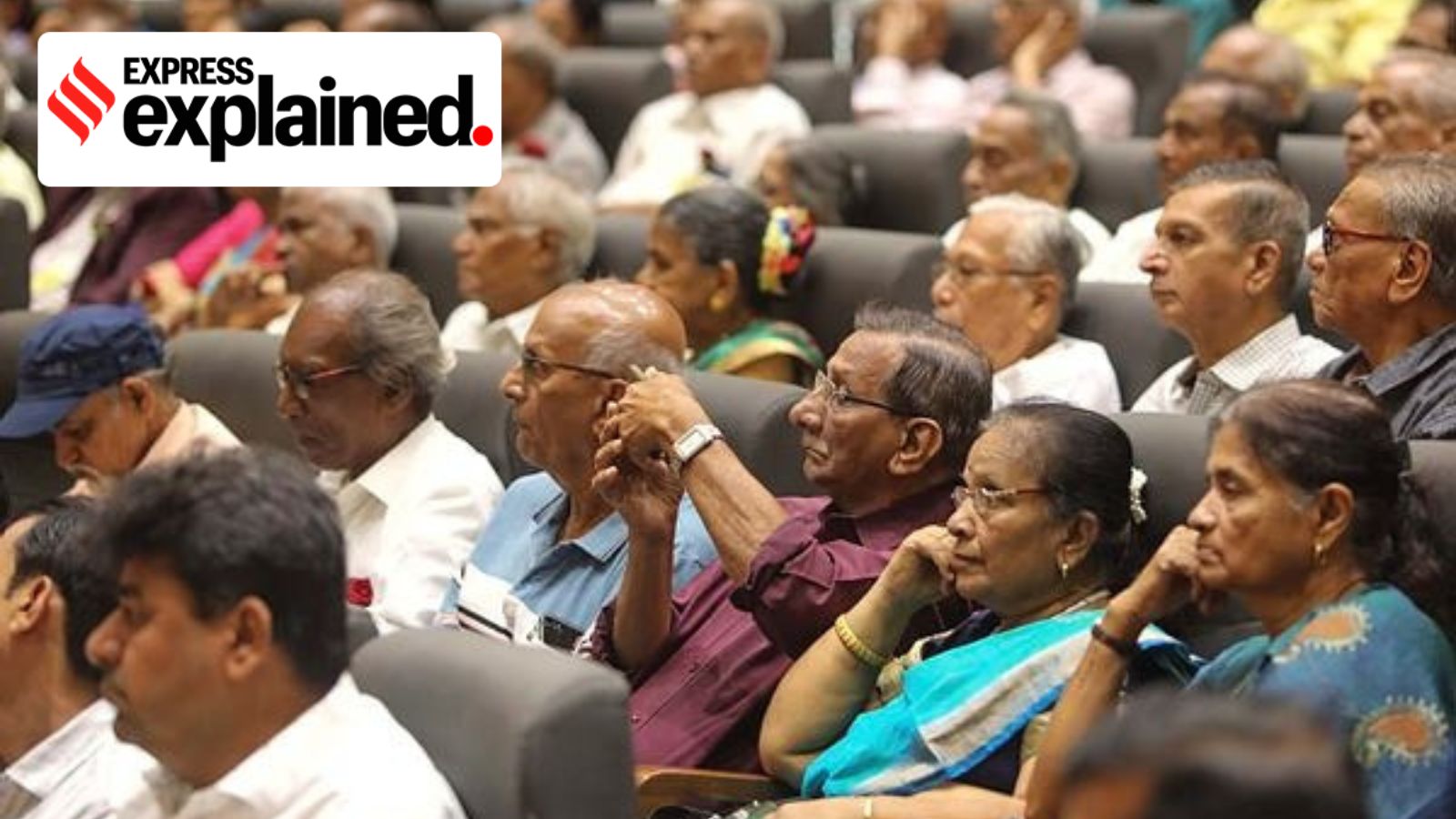The Kerala government this week released the draft of its State Policy for Elder Persons, proposing a comprehensive framework to address the needs of the state’s rapidly ageing population. This comes six months after becoming the first state to launch the Senior Citizens Commission under the Kerala State Senior Citizens Commission Act, 2025.
Kerala was among the first to create an elderly care policy in 2006. The policy was updated in 2013, which introduced several new measures for elderly welfare. The new draft policy aims to tackle new challenges as Kerala’s population ages. The state is experiencing one of the fastest demographic transitions in the country, marked by falling birth rates and a declining mortality rate, significantly increasing its elderly population. According to the International Institute of Migration and Development, people aged 60 and above comprised 12.7% of the state’s population in 2011, rising to 15% in 2021. This number is projected to reach 30% by 2051, making Kerala’s elderly population larger than its child population by 2030.

The policy is presently open for suggestions from the public. If approved, an Expert Committee would develop detailed action plans within three months of policy notification.
What are the key proposals?
The draft policy focuses on six key areas, including improving integrated care systems, establishing institutional support for the elderly, advancing equity and social justice among the marginalised elders, and mainstreaming ageing into institutional frameworks. It has a stated vision to ensure “dignity, well-being, and active participation of elders where no elder is left behind,” guided by 14 principles, including zero tolerance for elder neglect and abuse, and mainstreaming ageing considerations across governance frameworks.
It proposes a comprehensive law which goes beyond existing national laws to improve elderly welfare, protection, financial security and care with strict penalties for breaking rules related to elderly welfare.
The draft proposes a 5% budgetary allocation towards senior citizen welfare, with local government bodies required to allocate 10% of their budgets to such initiatives. It also introduces a cess on property taxes to fund these schemes.
How would the policy be implemented?
The draft outlines a monitoring system involving community-based monitoring, social audits, and a centralised digital tracking system. The policy encourages partnerships between public and private organisations, including corporate social responsibility contributions and community involvement.
Story continues below this ad
It proposes the creation of a dedicated professional cadre for elder care at the local government level and establishing two new bodies — a Vayojana Commission for regulatory oversight, and a Vayojana Council for strategic recommendations. At the community level, the policy proposes establishing Elder Neighbourhood Groups (ENHGs) in every locality as platforms for elderly participation and peer support. Local governments would prepare annual Status Reports on elderly persons and develop Individual Care Plans for vulnerable elders. One-stop centres will be set up in local governments to help elderly people with all their concerns in person.
What are some of the proposed services?
* A comprehensive care system will support elderly people whilst reducing the burden on their carers. The focus will be on family-based care, professional care options, and affordable solutions. This will help elderly people stay in their homes whilst providing alternatives for those who need different care arrangements.
* The proposed ENHGs for senior citizens would provide them with a platform to share their issues, access resources and remain socially active. Volunteer experts will provide technical advice and evidence-based recommendations to improve elder care at all levels. The policy also mandates that a state report on elderly issues will be published every five years.
Story continues below this ad
* Interestingly, the draft considers disaster preparedness as an area of concern, proposing elder-inclusive disaster shelters, emergency kits, and geo-tagging of elderly residences for emergency response.
* A key feature of the policy is its emphasis on ensuring equity and empowering the most disadvantaged sections of the elderly population. The policy proposes improving access to the state’s healthcare services, especially to those who are poor or socially disadvantaged. These would include adult vaccination programmes, community fitness centres, and improved public healthcare facilities with special elderly wards and telemedicine services. The policy would also focus on creating accessible environments and improving mobility, housing, and public spaces for elderly people through better design and digital accessibility.
* The policy acknowledges that elderly women face “lifelong gender-based discrimination”, noting that only 10% of elderly women are married compared to 20% of men, and proposes targeted interventions including financial literacy programmes and property rights awareness.
* The policy will also promote research on ageing challenges, including health, mobility, and social inclusion. It proposes setting up a Centre of Excellence in Gerontology, along with device banks for elderly people. To this end, the state would encourage the production of affordable, easy-to-use technology for older people.
Story continues below this ad
* The policy proposes programmes to help returning senior migrants use their skills through job training, mentoring, and roles in local development projects. This would help them rejoin their communities and give them a sense of purpose. The policy will also encourage elderly people to participate in community life to improve their quality of life and contributions to society.







































